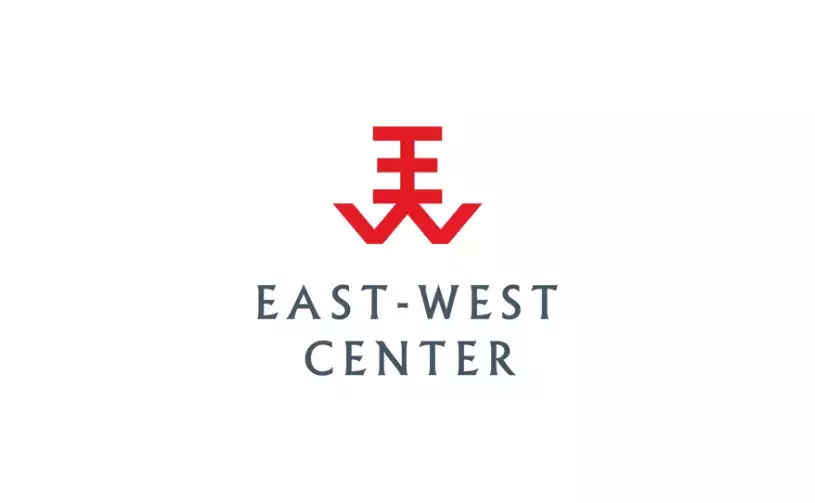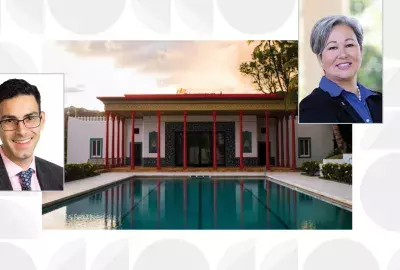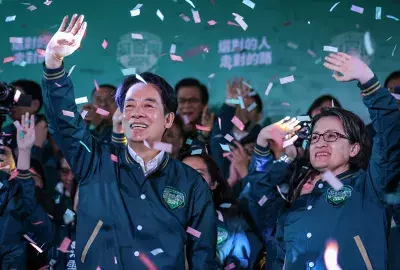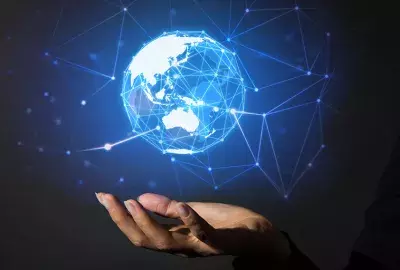Error message

By East-West Center
HONOLULU (Oct. 24, 2018)—China’s astonishing rise over the past few decades, both in terms of economic growth and international influence, represents the most fundamental shift in the global balance of power in more than a century. How the United States―and the rest of the world―adapts to this new reality will fundamentally shape the evolution of the global order going forward.
In a recent Distinguished Lecture at the East-West Center, Christopher K. Johnson, senior advisor and Freeman Chair in China Studies at the Center for Strategic and International Studies, described how China has changed under the leadership of Xi Jinping and suggested how the US might best respond. Xi has assumed greater personal authority than any Chinese leader since Mao Tse-tung, Johnson noted. His rise has been accompanied by dramatic changes in government policy in four areas―information sharing, economic development, the role of the military, and China’s position in the world.
Since about 1980, the Chinese leadership’s communication strategy has shifted from “information control” to an approach that could be described as “information sharing.” Initially, there were few public news outlets, and they were easy to control. Then commercial outlets sprang up with a more sensational reporting style. Initially, the central government encouraged “investigative journalism” that reported on bad behavior in the provinces. But the new journalists began to question the country’s leaders, and at the same time, news platforms, including social media, began to proliferate. “The government’s response has been to create positive narratives and push them out on all platforms,” Johnson asserted. “So far, this approach has worked well with Chinese audiences.”
Turning to economic development, the Chinese government’s strategy in the past emphasized manufacturing for export based on a plentiful supply of cheap labor. This approach brought many of the Chinese people up to a certain level of prosperity. According to Johnson, however, “the Chinese economy appears today to be stuck in a ‘middle income trap.’ To move ahead and join the world’s advanced economies, the government hopes to leapfrog into the 21st-century knowledge economy with an emphasis on robotics and artificial intelligence.” One factor promoting this policy shift has been China’s very low birth rate, “which will lead to a short supply of young workers in the future.”
At the same time, Johnson pointed out that the Chinese military “has shifted from an internal focus, aimed at keeping the Communist Party in power, to an emphasis on being prepared to fight and win external wars. Following the US model, the Chinese military is becoming more externally focused and more lethal. They are changing very quickly, and so far, the transition appears to be successful.”
After keeping a low profile for years, China’s leaders are now working to position their country as a great power. “The stated goal,” according to Johnson, “is to export the ‘Chinese model’ to developing countries around the world. This model combines rapid economic development with one-party rule.” Johnson pointed out that China’s expanded international profile is reflected in the Belt and Road initiative, focusing on transportation and infrastructure projects that stretch from Pacific Island nations to Central Asia and beyond, including Africa.Today, economic issues are driving the relationship between China and the US into “the scratchiest period that has been seen for a long time,” said Johnson. He pointed out, “For years the economic relationship was complementary, benefitting both countries, so strategic issues could be pushed to the background. But that has changed.” According to Johnson, “The Chinese have announced that they are now a great power and they intend to act like one.”
So how is the US responding? Johnson described the initial US response as “a bit of a freak out.” Multiple, uncoordinated US reactions across a whole spectrum of sectors risk “making the Chinese feel that the US is initiating a new cold war.” Rather, with limited resources, “the US needs to pick and choose our responses to China’s expanding international role,” Johnson emphasized.
As the Chinese offer large loans for infrastructure projects in Pacific Island nations, for example, Johnson warns that the US and allies Australia and New Zealand need to pay close attention. “We should not position ourselves as rivals to China, but should rather make clear what we have to offer, particularly in the much-needed area of good governance.”
To maintain US leadership in innovation and the development of information technology, Johnson recommended that “the US government should go beyond complaining about technology theft and provide much greater support for research and development, both in government departments and private US companies.”
One big mistake, in Johnson’s view, was the US withdrawal from the Trans-Pacific Partnership (TPP) multilateral trade agreement. The TPP brought 12 nations from around the Pacific together to lower barriers to trade, support intellectual property rights, improve workers’ rights, protect the environment, and limit government support of state-owned enterprises. Today, under Japanese leadership, the 11 remaining members are working to salvage the TPP and to add new members. If the US wishes to re-enter the agreement, as some have speculated, it might not be entirely welcome, according to Johnson.
Xi Jinping is scheduled to meet with US President Donald Trump at the G20 Summit in Argentina in November 2018. Hopes are high that the two countries will call a truce in the current trade war and seriously negotiate their tariff disputes. If that opportunity passes, Johnson warns that “we might be looking at a cold war playbook with an opposing power that is very different and potentially much more formidable than the former Soviet Union.”
Christopher K. Johnson is an accomplished Asian affairs specialist, having spent nearly two decades serving in the U.S. government’s intelligence and foreign affairs communities. Throughout his career, he has chronicled China’s dynamic political and economic transformation, the development of its robust military modernization program, and its resurgence as a regional and global power. His recent talk in Honolulu was part of the East-West Center Distinguished Lecture Series.
Download a PDF version of this Wire article.
##
The East-West Wire is a news, commentary, and analysis service provided by the East-West Center in Honolulu. All or any part of the Wire content may be used by media with attribution to the East-West Center or the person quoted. To receive Wire articles via email, subscribe here. For links to all East-West Center media programs, fellowships and services, see www.eastwestcenter.org/journalists.
The full list of East-West Wires produced by the Research Program is available on the East-West Center website. For more on the East-West Center Research Program, see www.eastwestcenter.org/research.
The East-West Center promotes better relations and understanding among the people and nations of the United States, Asia, and the Pacific through cooperative study, research, and dialogue.
Series editors:
Derek Ferrar
[email protected]
By East-West Center
HONOLULU (Oct. 24, 2018)—China’s astonishing rise over the past few decades, both in terms of economic growth and international influence, represents the most fundamental shift in the global balance of power in more than a century. How the United States―and the rest of the world―adapts to this new reality will fundamentally shape the evolution of the global order going forward.
In a recent Distinguished Lecture at the East-West Center, Christopher K. Johnson, senior advisor and Freeman Chair in China Studies at the Center for Strategic and International Studies, described how China has changed under the leadership of Xi Jinping and suggested how the US might best respond. Xi has assumed greater personal authority than any Chinese leader since Mao Tse-tung, Johnson noted. His rise has been accompanied by dramatic changes in government policy in four areas―information sharing, economic development, the role of the military, and China’s position in the world.
Since about 1980, the Chinese leadership’s communication strategy has shifted from “information control” to an approach that could be described as “information sharing.” Initially, there were few public news outlets, and they were easy to control. Then commercial outlets sprang up with a more sensational reporting style. Initially, the central government encouraged “investigative journalism” that reported on bad behavior in the provinces. But the new journalists began to question the country’s leaders, and at the same time, news platforms, including social media, began to proliferate. “The government’s response has been to create positive narratives and push them out on all platforms,” Johnson asserted. “So far, this approach has worked well with Chinese audiences.”
Turning to economic development, the Chinese government’s strategy in the past emphasized manufacturing for export based on a plentiful supply of cheap labor. This approach brought many of the Chinese people up to a certain level of prosperity. According to Johnson, however, “the Chinese economy appears today to be stuck in a ‘middle income trap.’ To move ahead and join the world’s advanced economies, the government hopes to leapfrog into the 21st-century knowledge economy with an emphasis on robotics and artificial intelligence.” One factor promoting this policy shift has been China’s very low birth rate, “which will lead to a short supply of young workers in the future.”
At the same time, Johnson pointed out that the Chinese military “has shifted from an internal focus, aimed at keeping the Communist Party in power, to an emphasis on being prepared to fight and win external wars. Following the US model, the Chinese military is becoming more externally focused and more lethal. They are changing very quickly, and so far, the transition appears to be successful.”
After keeping a low profile for years, China’s leaders are now working to position their country as a great power. “The stated goal,” according to Johnson, “is to export the ‘Chinese model’ to developing countries around the world. This model combines rapid economic development with one-party rule.” Johnson pointed out that China’s expanded international profile is reflected in the Belt and Road initiative, focusing on transportation and infrastructure projects that stretch from Pacific Island nations to Central Asia and beyond, including Africa.Today, economic issues are driving the relationship between China and the US into “the scratchiest period that has been seen for a long time,” said Johnson. He pointed out, “For years the economic relationship was complementary, benefitting both countries, so strategic issues could be pushed to the background. But that has changed.” According to Johnson, “The Chinese have announced that they are now a great power and they intend to act like one.”
So how is the US responding? Johnson described the initial US response as “a bit of a freak out.” Multiple, uncoordinated US reactions across a whole spectrum of sectors risk “making the Chinese feel that the US is initiating a new cold war.” Rather, with limited resources, “the US needs to pick and choose our responses to China’s expanding international role,” Johnson emphasized.
As the Chinese offer large loans for infrastructure projects in Pacific Island nations, for example, Johnson warns that the US and allies Australia and New Zealand need to pay close attention. “We should not position ourselves as rivals to China, but should rather make clear what we have to offer, particularly in the much-needed area of good governance.”
To maintain US leadership in innovation and the development of information technology, Johnson recommended that “the US government should go beyond complaining about technology theft and provide much greater support for research and development, both in government departments and private US companies.”
One big mistake, in Johnson’s view, was the US withdrawal from the Trans-Pacific Partnership (TPP) multilateral trade agreement. The TPP brought 12 nations from around the Pacific together to lower barriers to trade, support intellectual property rights, improve workers’ rights, protect the environment, and limit government support of state-owned enterprises. Today, under Japanese leadership, the 11 remaining members are working to salvage the TPP and to add new members. If the US wishes to re-enter the agreement, as some have speculated, it might not be entirely welcome, according to Johnson.
Xi Jinping is scheduled to meet with US President Donald Trump at the G20 Summit in Argentina in November 2018. Hopes are high that the two countries will call a truce in the current trade war and seriously negotiate their tariff disputes. If that opportunity passes, Johnson warns that “we might be looking at a cold war playbook with an opposing power that is very different and potentially much more formidable than the former Soviet Union.”
Christopher K. Johnson is an accomplished Asian affairs specialist, having spent nearly two decades serving in the U.S. government’s intelligence and foreign affairs communities. Throughout his career, he has chronicled China’s dynamic political and economic transformation, the development of its robust military modernization program, and its resurgence as a regional and global power. His recent talk in Honolulu was part of the East-West Center Distinguished Lecture Series.
Download a PDF version of this Wire article.
##
The East-West Wire is a news, commentary, and analysis service provided by the East-West Center in Honolulu. All or any part of the Wire content may be used by media with attribution to the East-West Center or the person quoted. To receive Wire articles via email, subscribe here. For links to all East-West Center media programs, fellowships and services, see www.eastwestcenter.org/journalists.
The full list of East-West Wires produced by the Research Program is available on the East-West Center website. For more on the East-West Center Research Program, see www.eastwestcenter.org/research.
The East-West Center promotes better relations and understanding among the people and nations of the United States, Asia, and the Pacific through cooperative study, research, and dialogue.
Series editors:
Derek Ferrar
[email protected]
East-West Wire
News, Commentary, and Analysis
The East-West Wire is a news, commentary, and analysis service provided by the East-West Center in Honolulu. Any part or all of the Wire content may be used by media with attribution to the East-West Center or the person quoted. To receive East-West Center Wire media releases via email, subscribe here.
For links to all East-West Center media programs, fellowships and services, see www.eastwestcenter.org/journalists.







